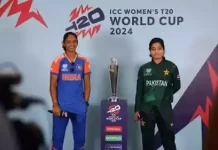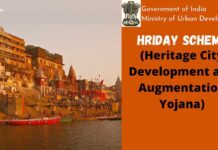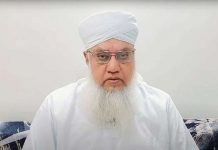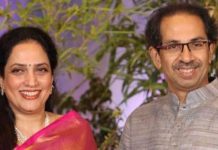Part XXI of the Constitution’s “temporary, transitional, and special provisions” is where Article 370 is located, Chief Justice of India D Y Chandrachud noted as a five-judge Constitution Bench began hearing the petitions.
the provision that granted special status to J&K was meant to be temporary until the Constituent Assembly for the former state took a decision, the Supreme Court asked petitioners who have challenged changes made to Article 370 of the Constitution on their claim that the provision was meant to be temporary on Wednesday.
Part XXI of the Constitution’s “temporary, transitional, and special provisions” is where Article 370 is located, Chief Justice of India D.Y. Chandrachud noted as a five-judge Constitution Bench began hearing the petitions.
“Those that are temporary are those that have no set end date and are meant to last for a little time. Transitional refers to something that unavoidably has an end. Third is unique… In neither a headnote nor a marginal note attached to the article is the word “transitional” used. But in the marginal notes, the terms “temporary” and “special” are employed. Additionally, 370 specifically uses the word “temporary”… Can we then genuinely turn this into a permanent provision, which the Constitution never meant it to be, by saying that the President’s power under Clause 3 (to abrogate) vanishes once the Constituent Assembly comes to an end? The Chief Justice of India questioned Senior Counsel Kapil Sibal regarding who began the petitioners’ side’s arguments.
Justices S K Kaul, Sanjiv Khanna, B R Gavai, and Surya Kant were also on the bench when Sibal stated that “when 370 was put in, it had to be a temporary provision. At that time, nothing was present there.
The CJI questioned, “So why was it in Part XXI of the Constitution?
Because it’s distinct, Sibal remarked. It relates to a specific state where two sovereigns have joined forces and created an integrated contract.
Justice Gavai emphasised that Part XXI covers more than just J&K.
That is why I said it was a distinct, independent clause that needed to be evaluated according to its own wording, Sibal added. You cannot declare that this is how we will read 370 by integrating ideas from other texts into 370. 370 is not a passing phase.
The CJI drew attention to the fact that the article’s marginal note “expressly states that it is temporary.”
That is to say, until the Constituent Assembly makes a decision, Sibal explained.
He said that “there was no such thing as a Constituent Assembly even when the Constitution came into force” and questioned “how did the Constitution add it in the Article.” Because “there was an understanding,” he claimed, this occurred.
Sibal stated at the outset that the hearing is historic for a variety of reasons. It is significant because it will be decided whether the people of J&K would be denied a representative form of government due to a Union decree that is against the Constitution. Additionally, it is significant since it took your lordships five years to begin hearing this matter, during which time J&K was without a representative government. The court’s interpretation of Article 356 of the Constitution, which aims to restore democracy, and how they have weakened democracy as a result will make it historically significant as well. Can that be done in accordance with Article 356? said he.
According to Sibal, “J&K historically represented a very unique relationship unlike princely states” and he questioned “whether that historic relationship between sovereign authorities can be jettisoned in this manner by seeking to amend the Constitution and seeking to efface Article 370?”
He said the Governor, on June 20, 2018, decided to keep the Assembly under suspended animation without even trying to find out if a government can be formed or not. “On 19th June, a particular party withdrew support and on 20th June, the Governor passed this order,” he said.
He questioned whether the Assembly could have been dissolved on November 1, 2018, prior to the application of Article 356. According to him, the Assembly was dissolved by the Governor on June 21 without using Article 356.
Sibal stated that the petitioners “stand here on the assumption that J&K’s integration into India is unquestionable, was indisputable, and always remains unquestioned. That was assumed. Despite this, an unconstitutional mechanism was used to modify the entire structure overnight.
He stated that the fundamental question to be resolved was whether Parliament could have acted as the Constituent Assembly to enact the revisions.
Your Lordships shall ascertain what the word ‘Constituent Assembly’ means. Creating a Constitution for the future of the territory is the goal of a Constituent Assembly. It’s a political exercise rather than a legal one. To consider what kind of state the people want and their objectives is a political exercise. Create the Constitution in that environment. The Constitution is a political document in and of itself.
According to Sibal, “there was an understanding between the Government of India and the State that we would have a Constituent Assembly that would decide the future course of action and whether or not 370 should be annulled at all. The Constituent Assembly had the last say in that matter. Therefore, and for no other reason, Section 370 was referred to as a “temporary provision.” Therefore, the claim that it was just temporary is false. A Constituent Assembly was envisioned under the Constitution as having the power to determine Jammu and Kashmir’s future.
“You needed the Constituent Assembly’s recommendation before you could repeal 370,” he added. That is what the authors of the Constitution themselves believed in 1950.
He stated, “Today, the Indian Parliament cannot say by a resolution that we are the Constituent Assembly,” in reference to the 2019 revisions.
“A Constituent Assembly cannot become a Parliament. And if you accept that argument, it will have significant effects on the future of my nation. One of the most important and fundamental decisions that must be made is that, he stated.
In response to a question from the CJI, Sibal stated that the State’s Constituent Assembly was in office from 1951 to 1957.
The CJI was interested in what occurs when seven years have passed. “What transpires when the Constituent Assembly adjourns? According to him, no Constituent Assembly can exist indefinitely.
That’s precisely the point, Sibal retorted. After the Constitution is drafted, the Constituent Assembly cannot continue to exist. The Constituent Assembly would make that choice between 1951 and 1957. After that, there is no doubt… Such a notification cannot be issued by the President.
Despite the proviso’s termination, the CJI stated that Clause 3, which is the substantive component, “continues to hold the field.”
But Sibal responded, “No, it depends on the proviso.”
“You need to get a recommendation from the Constituent Assembly,” he stated, “if you want to abrogate 370 or amend it.”
According to the CJI, if Sibal’s reasoning is accepted, “370, which is a transitional provision, assumes the character of a permanent provision by virtue of the fact that there is no Constituent Assembly of the state after 1957,” which is how long it will continue to be in effect.


































